Article No. 714701
Adhesive primer for metals, rigid plastics and wood, with rust protection and sealing action against substances contained in wood
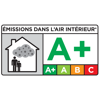
Product specifications
On delivery
The stated values represent typical product characteristics and are not to be construed as binding product specifications.
Field of application
- Primer and intermediate coat
- Metal substrates, e.g. (galvanised) steel, pure aluminium, copper, brass
- Hard plastics: hard PVC, PUR, polyester, acrylic and melamine resin coatings (HPL/CPL)
- For use on interior and exterior wood
- Wood types rich in active substances such as ash, Hevea, oak, whitewood/yellow poplar
- Solid wood & veneers
- Stable old coatings such as alkyd, acrylate, powder coatings and PUR lacquers
Properties
- Very good adhesion to the substrate
- Corrosion protection C3 long according to DIN EN ISO 12944-6
- Reduces yellow stains caused by water soluble substances in the wood when light shades of finishing coat are used
- Can be overcoated with many products: (see system products)
- Low solvent, mild odour
-
Preparation
-
Substrate requirements
Dimensionally stable wood building elements: wood moisture content 11-15%
Wood building elements with limited or no dimensional stability: wood moisture content max. 18%
Interior wood: wood moisture content 8 - 12%
-
Preparations
Thoroughly remove any dirt, grease and non-adhering old coatings.
Refer to the application examples for details of further preparation steps.
-
-
Application
-
Stir well.
Apply with a brush, roller or by spraying.
Airmix spraying: nozzle 0.28 - 0.33 mm, material pressure: 100 - 140 bar,
atomiser air pressure: 1.2 - 2 bar.Airless spraying: nozzle: 0.28 - 0.33 mm, material pressure: 100 - 140 bar.
Flow cup gun: nozzle 2.5 mm, atomiser air pressure: 2 - 3 bar.
After drying and intermediate sanding, coat with a water-based or solvent-based lacquer.
Observe the waiting times between coats.
-
Application instructions
-
Check colour and compatibility with the substrate by applying a trial coat.
Do not use at temperatures below +5°C.
If the temperature is too low or the humidity too high, it will take longer for the material to reach the desired properties.
-
Drying
Practice values at +20 °C and 65% relative humidity.
For faster drying, the coated object can be dried in a drying chamber up to a temperature of 60 °C.
Low temperatures, poor ventilation and high humidity delay drying.
Longer drying times can improve the sealing effect.
-
Working tools / cleaning
-
Brush with synthetic bristles, flat brush, foam roller, airless/airmix spraying equipment, flow cup gun
Clean tools with water or Aqua RK-898 Cleaning Concentrate immediately after use.
Ensure that any residue from cleaning is disposed of correctly.
-
Storage / shelf life
-
If stored unopened in its original container in a cool, dry place and protected against frost, the product will keep for at least 24 months.
-
Usage
-
Adhesive primer: 1 x 100 ml/m²
Corrosion protection and sealing action against substances contained in wood: 2 x 100 ml/m²
Sealing filler for interior wood: 2 x 200 - 250 ml/m²
-
Application examples
-
Application examples Standards Cleaning Note Primer Intermediate coat Topcoat Iron and steel Please refer to BFS leaflet no. 20 Mechanically remove all rust, rolling skin, scale and welding residues from the metal until a shiny metallic surface is visible.
Standard purity grade SA 2.5 (blasting) and ST3 (machined) according to DIN EN ISO 12 944-4. In addition, sharp edges and burrs should be rounded.
Aqua
AG-26
Universal PrimerAqua
AG-26
Universal PrimerSee possible system products Powder-coated components
Please refer to BFS leaflet no . 24 Ammoniacal cleaner with abrasive fleece
Depending on the powder coating, we recommend preparing a trial surface to check adhesion
Aqua
AG-26
Universal Primer--- See possible system products
Rigid PVC Please refer to BFS leaflet no. 22 Ammoniacal cleaner with abrasive fleece
Depending on the PVC type and load class, we recommend preparing a trial surface to check adhesion
Aqua
AG-26
Universal Primer--- See possible system products Aluminium (not anodised) Please refer to BFS leaflet no. 6
Ammoniacal cleaner with abrasive fleece
Depending on the aluminium type and load class, we recommend preparing a trial surface to check adhesion
Aqua
AG-26
Universal Primer--- See possible system products Stable old coatings Please refer to BFS leaflet no. 20
Remove non-stable substrates completely. Only stable and non-chalking substrates may be recoated
Depending on the old coating, we recommend preparing a trial surface to check adhesion
Aqua
AG-26
Universal Primer--- See possible system products Zinc and galvanised steel
Please refer to BFS leaflet no. 5 Ammoniacal cleaner with abrasive fleece
Depending on the zinc type and load class, we recommend preparing a trial surface to check adhesion
Aqua
AG-26
Universal Primer--- See possible system products Wood Please refer to BFS leaflet no. 18 Completely remove dirt, grease and loose old coatings. Remove and clean loose and cracked knots, open resin spots
Depending on the wood substrate and load class, we recommend preparing a trial surface to check the adhesion/sealing effect
Aqua IG-15 Impregnation Primer IT * (exterior use, protection against rot and blue stain) 2 x Aqua
AG-26
Universal PrimerSee possible system products
-
-
General information
-
Insulation of resins and substances contained in the wood.
The instructions regarding coats, application volumes and drying times for the coating system must be followed to ensure the best possible insulation for water-soluble substances contained in the wood (flat surfaces and branches). The first coat can activate substances in the wood and discolour the film on the coating, which will lock the substances inside the film. The second coat of insulating product will then seal off the substances contained in the wood.
Subsequent finish coats are then usually no longer affected by substances contained in the wood.
At least two coats of the product are required to achieve an efficient insulating effect.
If discolouration continues even after following these steps, we recommend contacting our RTS (Remmers Technical Service).
Bleeding resin is a natural phenomenon and cannot be prevented by coating measures, see BFS Code of Practice No. 18.
The product’s insulating effect may be impaired if it is diluted too thinly, if the wood is too wet or if the recommended coating sequence, application volumes and drying times are not observed. With water-based coating systems, there is always the residual risk that substances contained in the wood will leach out.
Check colour, adhesion and compatibility with the substrate by setting up a trial area.
Adhesion to the substrate and adhesion of system products.
Low temperatures, low air exchange and high humidity cause drying delays and can delay the achievement of the final bond strength for up to 7 days. This is especially true for coloured shades.On planed larch and softwoods with a high resin content, the coating may have reduced adhesion and resistance to weathering. This is especially the case on horizontal year rings, knots and areas of winter growth that are high in resin. Maintenance must be carried out more frequently on these surfaces.
The only remedy for this is pre-weathering or very coarse sanding (P80).
If these wood types are rough-sawn, considerably longer maintenance intervals are to be expected.Observe the regulations concerning design principles for wood protection.
Do not use on horizontal surfaces without drainage slopes and without edge radius, avoid accumulated moisture.
-
-
Disposal instructions
-
Larger quantities of leftover product should be disposed of in the original containers in accordance with the applicable regulations. Completely empty, clean containers should be recycled. Do not dispose of together with household waste. Do not allow to enter the sewage system. Do not empty into drains.
-
-
Safety / regulations
-
For further information on the safety aspects of transporting, storing and handling the product and on disposal and environmental matters, please see the current Safety Data Sheet.
-


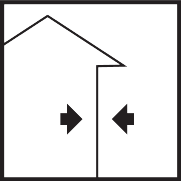

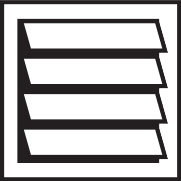



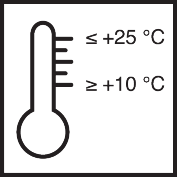
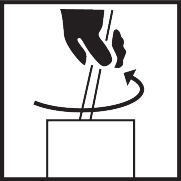


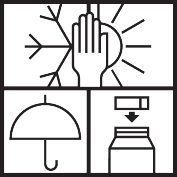

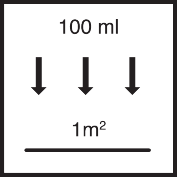






![Aqua OWF-68/tm [eco] Aqua OWF-68/tm [eco]](https://m.remmers.com/gebindeabbildungen/2400w/51831.png?w=100&version=5)







